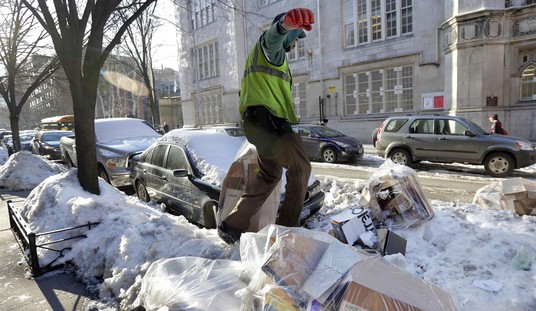It is a moral abomination that cries out for justice: even in death, the obese cannot escape the crushing oppression of fatphobia. And racism too.
Here, we will learn that, when medical institutions reject fat corpses for seemingly legitimate, purely logistical reasons, they are actually committing double hate crimes.
Related: Diverse Fat Activist Gets Paid to Lie to Children About Nutrition for Corporate Profit
The fats, yet again, are made to ride Jim Crow-style in the proverbial back of the bus — or the hearse, or whatever.
Via Popular Science:
Robin Epley, a California-based reporter… attempted to honor her mother’s wishes by enrolling her in a body donation program after her death in 2019. In a personal essay Epley wrote about the ordeal, she described the “ultimate fat-shaming experience” as her mother’s body was turned away by program after program on the basis of her weight alone…
Body donation programs can run either through medical schools or independently and will have slightly different criteria for which donations they’re willing to accept, but it’s not uncommon for these limits to cap at 180 to 200 pounds. Even stricter still, some will look at a donor’s body mass index (BMI) alone to determine whether or not they’ll be accepted.
This means that in death, as in life, those who carry their weight “better” may be more favorable and be accepted into donation programs, while those with a less lean appearance and higher BMI will not. This is a problem for a number of reasons, says Sabrina Strings, sociologist at the University of California, Irvine and author of the book Fearing the Black Body: The Racial Origins of Fat Phobia.
“BMI is a problem because it was devised using something that is not a scientific method,” Strings says. “Effectively, there were a handful of white American and white British doctors who were very concerned about what they considered to be the growing problem of obesity in the West. So they devised to set up their own limits on how much a person could weigh.”
Muh White Supremacy™!
(I have written about Sabrina Strings and her “fatphobia is racism” hustle previously at PJ Media.)
For a little reality injected into the analysis, here are some actual reasons besides imaginary racism that medical schools reject the fats:
Angela McArthur is the director of the University of Minnesota’s Anatomy Bequest Program, which, like the UC system, has a comparatively higher weight criteria of 250 pounds. She says that there are a number of reasons for this limit, including the load capacity and dimensions of medical tables used to hold donors’ bodies. Schmitt concurs and says that staff safety in moving donors above this weight limit can be a safety concern.
Part of this concern with safety comes from the fact that the embalming process can add additional weight to bodies after they’ve been admitted to a donation program, McArthur says. She explains that bodies being prepared for a wake or short viewing at a funeral home may only have a negligible pound or two added during embalming, while those assigned to medical students can tack on an extra 64 pounds on average…
Apart from logistical concerns, extra adipose tissue (or fat) on donated bodies may also be less desirable in first-year gross anatomy labs, where medical students glean the basics, simply because it can be more time-consuming or physically challenging to study the internal structures under layers of tissue. Instead, says Schmitt, bodies with more adipose tissue may be requested for specialty courses further along a student’s medical training, such as in bariatric research.










